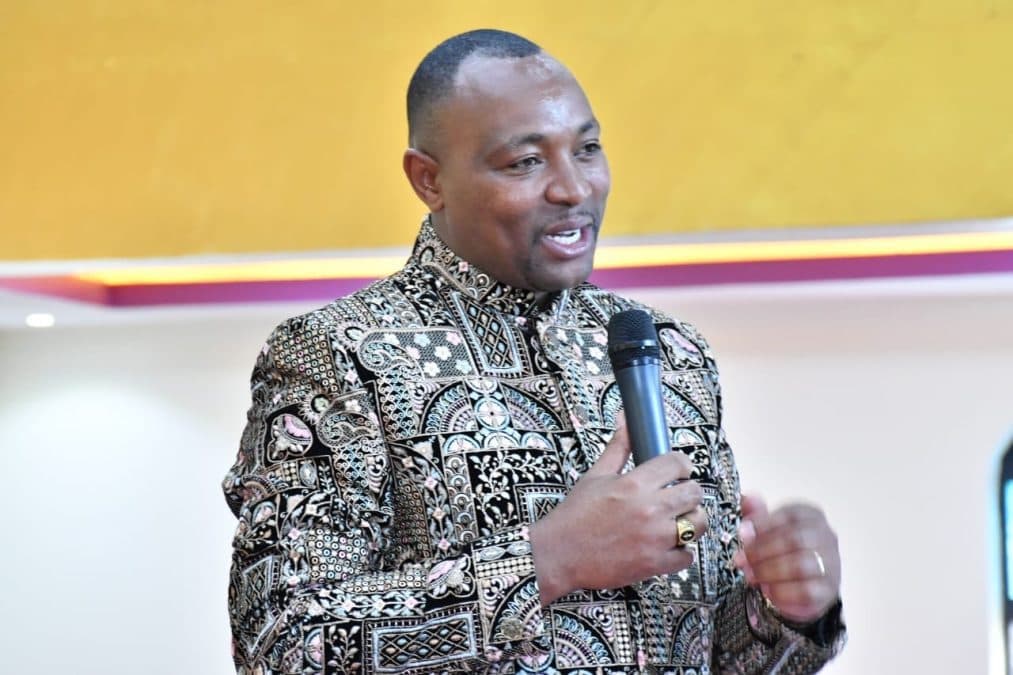We're loading the full news article for you. This includes the article content, images, author information, and related articles.
Controversial pastor Victor Kanyari has publicly questioned the motives of Bishop Muthee Kiengei's involvement in a viral, youth-led fundraising event in Embu, sparking a debate on the role of religious figures in the growing trend of social media philanthropy in Kenya.

A massive, youth-driven charity initiative that galvanized thousands of Kenyans online culminated in a significant fundraising event in Embu County on Sunday, 26th October 2025, EAT. The event, organized primarily by content creators on the social media platform TikTok, was held to support a young single mother from Gathoge village, identified as Mama Gift, whose infant son battles multiple severe health conditions including cerebral palsy, chronic asthma, and cardiovascular complications. However, the widespread show of public solidarity was met with controversy after controversial Nairobi-based preacher, Pastor Victor Kanyari, publicly criticized the involvement of fellow clergyman Bishop Muthee Kiengei, suggesting his participation was motivated by a desire for publicity. DETAILS UNCONFIRMED.
The event saw thousands of young Kenyans, many of whom organized and traveled through social media coordination, converge on Njukiri Showground in Embu. They delivered donations of household goods, medical supplies, and financial contributions to assist Mama Gift with her son's extensive medical needs. This initiative is the second of its kind in recent weeks, following a similar successful online campaign for a young man known as 'Kaluma Boy,' who gained viral attention for caring for his ailing father. Bishop Muthee Kiengei, a media personality and leader of Jesus Christ Compassion Ministries (JCM), was actively involved in promoting and coordinating both the Kaluma Boy and Mama Gift fundraisers, arranging transport for attendees and encouraging donations through his church. The event was streamed live across multiple social media platforms, amplifying its reach and drawing further support. While a final official tally of the funds raised has not been publicly released, organizers and attendees have described the amount as significant. FURTHER INVESTIGATION REQUIRED.
In the days following the event, Pastor Victor Kanyari, a figure renowned for numerous past controversies including the infamous "mbegu ya 310" scandal where he requested specific sums of money for miracles, took to social media to question the integrity of the charity drive. According to several media reports, Kanyari accused Bishop Kiengei of using the highly publicised event for personal "show off" rather than genuine philanthropy. While direct, verifiable quotes of his full statement remain elusive, the sentiment has been widely reported as a critique of public-facing charity efforts by religious leaders. FURTHER INVESTIGATION REQUIRED. The accusations have drawn a mixed reaction from the Kenyan public online. Some social media users have sided with Kanyari, expressing skepticism about the motivations behind televised or streamed acts of giving. Others have defended Bishop Kiengei, accusing Kanyari of professional jealousy and attempting to undermine a positive community initiative. Bishop Kiengei has not issued a direct public response to Pastor Kanyari's specific allegations as of Tuesday, 28th October 2025, EAT. DETAILS UNCONFIRMED.
The controversy highlights the contrasting public profiles of the two religious leaders. Pastor Kanyari's career has been persistently dogged by scandals. In 2014, an investigative exposé accused him of staging miracles and coaching testimonies to solicit donations. He has more recently embraced TikTok, where his live sessions have often drawn criticism for their unconventional and sometimes explicit nature. Kanyari has previously admitted that some of his fundraising tactics, such as the '310 seed,' were born out of financial desperation rather than divine instruction.
In contrast, Bishop Muthee Kiengei has cultivated a reputation for engaging in grassroots philanthropy, often in collaboration with online influencers. His church was central to the successful fundraising for Kaluma Boy, which reportedly raised over KSh 2 million in a short period to build the family a new home and secure a university scholarship for the young man. Kiengei has publicly advocated for showcasing charitable acts on social media, arguing it inspires others to give and provides transparency to donors. This public stance stands in stark opposition to the criticism leveled by Kanyari.
This clash occurs against the backdrop of a burgeoning movement where Kenyan youth, often referred to as Gen Z, are using social media platforms to organize and execute large-scale social welfare campaigns independent of traditional institutions. The success of the Kaluma Boy and Mama Gift drives demonstrates a powerful new model of community support, raising questions about the future role of established religious and charitable organizations. The controversy between Kanyari and Kiengei underscores a broader debate within Kenya about faith, transparency, and the ethics of public generosity in the digital age. As young Kenyans increasingly take the lead in mobilizing for social causes, the incident in Embu may serve as a critical case study on the evolving landscape of philanthropy in the nation.
Keep the conversation in one place—threads here stay linked to the story and in the forums.
Sign in to start a discussion
Start a conversation about this story and keep it linked here.
Other hot threads
E-sports and Gaming Community in Kenya
Active 9 months ago
The Role of Technology in Modern Agriculture (AgriTech)
Active 9 months ago
Popular Recreational Activities Across Counties
Active 9 months ago
Investing in Youth Sports Development Programs
Active 9 months ago